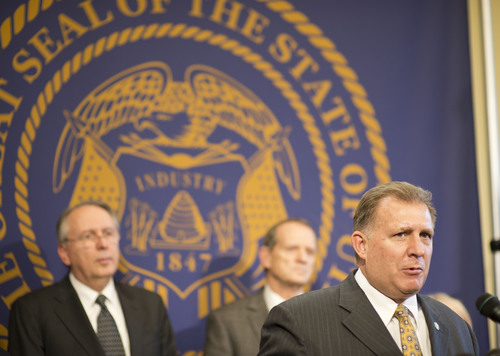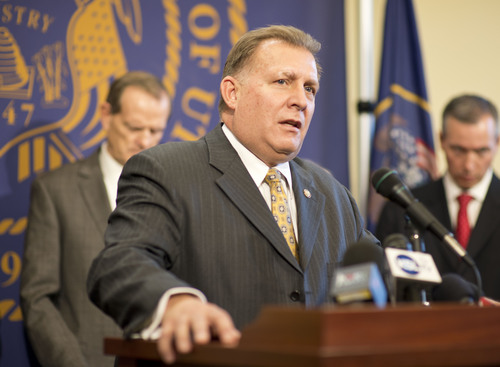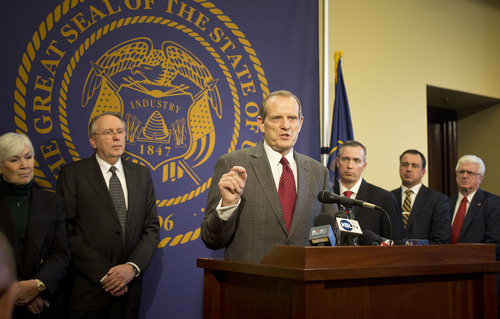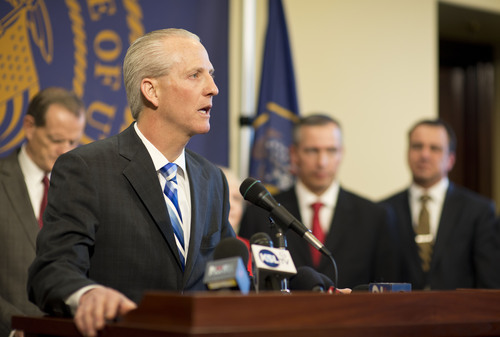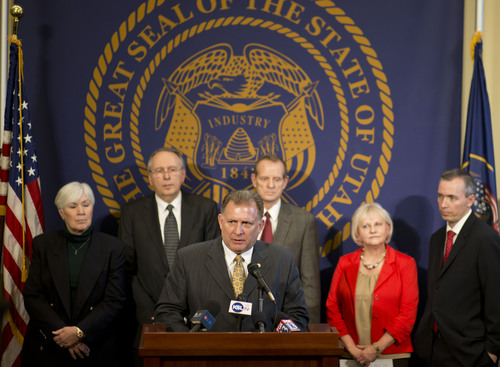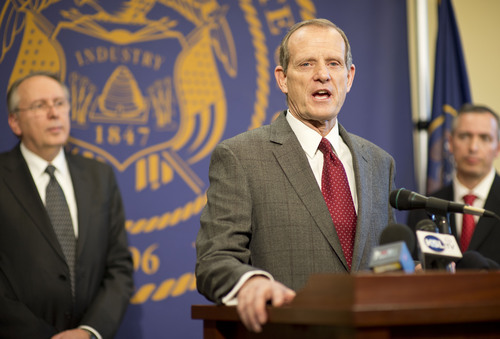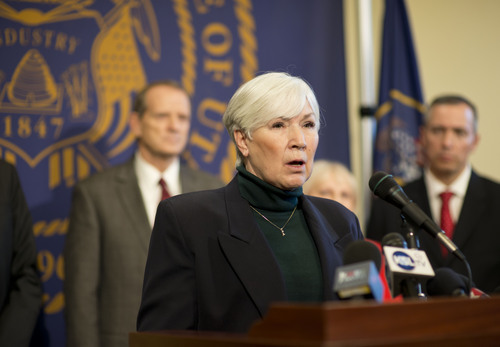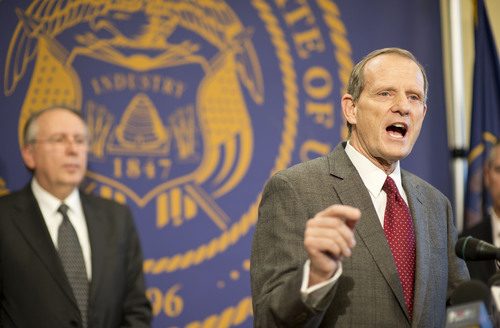This is an archived article that was published on sltrib.com in 2014, and information in the article may be outdated. It is provided only for personal research purposes and may not be reprinted.
Lawmakers and Count My Vote leaders confirmed Sunday that they had reached a deal on the controversial ballot initiative.
After a Saturday news conference was scrubbed at the last minute amid disagreement over details of the bill language, both sides announced Sunday that candidates for office will be allowed to gather signatures to get on a primary ballot, rather than go exclusively through the parties' caucuses and conventions.
"This is an elegant solution that significantly enhances participation for all Utah voters," said Rich McKeown, executive chair of Count My Vote, who thanked both sides of the aisle for working together on what was described at the press conference as a difficult compromise. The bill, a substitute version of SB54, is scheduled to go before a House committee Monday morning.
But Blake Cozzens, state coordinator for Protect Our Neighborhood Elections, a group opposed to the Count My Vote effort, characterized the revision of SB54 as a "surrender." The legislation will allow wealthy candidates to bypass the convention system without meeting voters on a grass-roots level, Cozzens said, adding that his group intends to pursue legal action against it.
The deal may put some legislators in a difficult spot, as they are just weeks away from party conventions where they'll face delegates who will decide their political fates. Opposition has been widespread to the Count My Vote initiative among Republican delegates, who say the existing caucus-convention system produces the best results.
The compromise earned support from the state's top GOP official, however.
"While we may not fully agree on the details of the compromise, we are supportive of our Republican legislators because we believe they are acting in good faith, making the best of a difficult situation, and doing what they believe is in the best interest of Utah," said a statement from James Evans, the state's Republican Party Chairman, issued after Sunday's press conference.
Under the new framework of SB54, political parties would be able to keep the caucus system — where delegates chosen at neighborhood meetings generally choose nominees at the party conventions — but also are required to provide an alternative path to the primary ballot.
That alternative allows any candidate who gathers enough signatures of registered voters to be listed on the primary ballot. A statewide candidate would need to gather 28,000 signatures; a candidate for one of the four congressional districts would need 7,000; a state Senate candidate would need to collect 2,000 signatures; and a House candidate would need 1,000.
The parties also would have to allow unaffiliated voters to vote in their primaries and allow absentee voting for delegates at a party convention.
If Gov. Gary Herbert signs the bill, Count My Vote organizers will stop trying to gather enough signatures to put the measure on the ballot. As originally conceived, the measure would have scrapped the party caucuses and conventions in favor of the direct primary system in which candidates gathered signatures. Count My Vote, which was years in the making and formally launched in September, has spent more than $1 million gathering more than 100,000 signatures to put the measure on the ballot.
McKeown said Count My Vote has developed a following and intends to continue encouraging voter participation.
"Responsibility today shifts to the public, it shifts to the voters of the state of Utah," said Rep. Brad Dee, R-Ogden. "It is imperative that they grasp this opportunity to be heard and be part of the process… You can no longer let somebody else do it. You must take advantage of this opportunity."
Reporter Robert Gehrke contributed to this story.
Twitter: @mikeypanda


